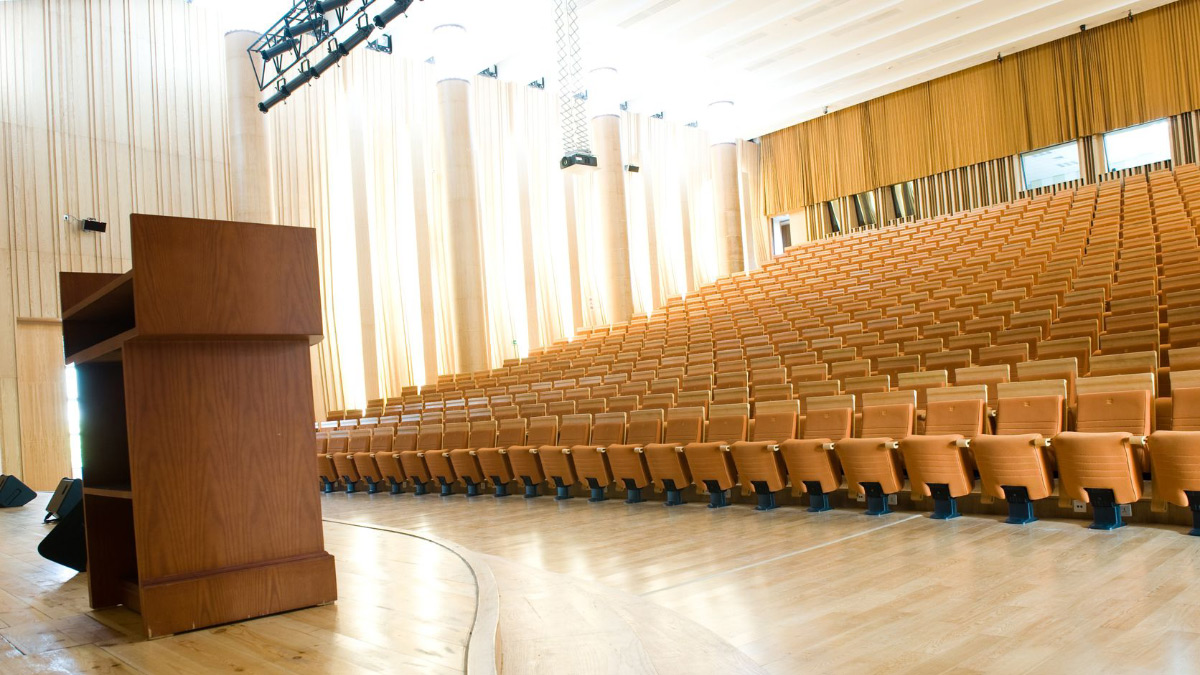Gonzaga and Rider universities in many ways are different: they are on opposite sides of the country (Washington state and New Jersey), and Gonzaga is a Catholic (Jesuit) institution, while Rider is non-sectarian. But both schools are similar sized fairly thinly endowed private institutions heavily dependent on tuition fees, and both have recently shown a disdain for free expression (Rider in a most peculiar way), something at the very essence of both learning and tolerance.
Gonzaga
Charlie Copeland, the head of the Intercollegiate Studies Institute (ISI), related to me about his organization’s attempt to debate the proposition “Why Bother with a Liberal Arts Education?” ISI invited George Mason Professor Bryan Caplan to argue liberal arts study is unimportant, Clemson professor Brookes Brown to disagree, and Utah State professor Harrison Kleiner to moderate. ISI asked Gonzaga for space to host the event, apparently even willing to pay a rental fee. Gonzaga rejected the request, refused to provide an explanation why, and denied the organization’s plan to advertise the event on campus. Not deterred, ISI rented space in a nearby hotel, and Gonzaga faculty not in sync with the administration’s opposition to the debate promoted it. Nearly 100 persons, mostly students attended.
While the Jesuits, for all their erudition and scholarship have a somewhat checkered history regarding support of free expression, I have no idea why Gonzaga did not want this debate to proceed, as it confronts a real issue in American higher education—are the liberal arts something to be cherished and encouraged, or are they an increasingly ideology-tainted mishmash of scholarship of little use in today’s world? The scholars involved are serious accomplished persons (I know Caplan well and like his new book).
Moreover, I have been advocating for years the more aggressive use of formal debates on campus as a way of promoting intellectual diversity, something often missing on campuses. ISI has been around for about two-thirds of a century adding some competition to the marketplace of ideas, especially introducing conservative or libertarian perspectives often missing in today’s collegiate environment. I hope that ISI flourishes and expands and engages ever larger numbers of students in the quest for truth and beauty.
Rider
Rider’s main campus is less than 10 miles from both Princeton University and the public but somewhat selective College of New Jersey. It wanted to bring in some new private eating options for students. The students showed a strong interest in having a Chick-Fil-A store on campus. A second vote was taken—with Chick-Fil-A left off the list of choices. Why? Chick-Fil-A’s president has said he is against same sex marriages. The LGBTQ community has shown its displeasure by boycotting the restaurant chain, etc. Rider’s spokeswomen said “our intention was to foster a sense of respect and belonging of all members of the campus community....”
So the will of a majority of students is thwarted because the religious-informed beliefs of a restaurant’s CEO differs from what Rider’s administration decides is “correct?” Does tolerance of alternative perspective play a role in Rider’s moral code? Shouldn’t student desire to have a restaurant they like count for something? It was all too much for business school dean Cynthia Newman, who said the university’s decision clashed with her personal religious beliefs, and she accordingly resigned as dean. Universities, trying so hard to be politically correct, make decisions that sometimes appear highly intolerant. I personally think marriage is a personal decision, and that governments should not even have a role in sanctioning spousal relationships. I believe that if individuals of the same sex wish to considered themselves, “married,” that is their business. But it should not be a college’s business to try to force “its” views on others. And who is Rider University? Isn’t it supposed to be a community of scholars of widely different backgrounds tolerant of all kinds of different views?
Promoting Intellectual Diversity
Beside ISI, others on many campuses are doing their bit to increase intellectual diversity. Among elite eastern schools, I think of important efforts at Princeton (Robert George), Brown (John Tomasi), Williams (Uncomfortable Learning program), Dartmouth (Douglas Irwin) and Hamilton College (off campus efforts of the Alexander Hamilton Institute and professors like Bob Paquette and Jim Bradfield). We need to promote free and unfettered discourse more nationwide, and have unfettered discussion, perhaps while we eat our Chick-Fil-A.












